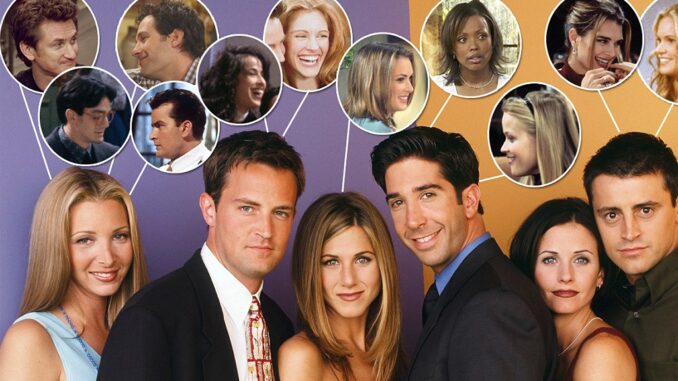
Neither writer of ‘The One with the Blackout’ was able to take responsibility for the episode’s enduring impact
If I accidentally invented the rallying cry for thousands of embarrassing incel rants, I wouldn’t want my name attached to it either.
On November 3, 1994, NBC aired an episode of their new sitcom Friends that would change the most brainless discussions on sexual politics forever with “The One with the Blackout.” In the Season One episode, New York experiences a city-wide blackout, Chandler gets stuck in an ATM vestibule with Victoria’s Secret model Jill Goodacre and Ross struggles to communicate his romantic feelings to Rachel after keeping them bottled up ever since the ninth grade. During a pivotal scene in the episode, Joey, ever the expert on simplifying sexual dynamics for the benefit of the male libido, warns Ross that he is slipping into the dreaded “friend zone,” a place where unconfident men find themselves trapped in platonic relationships with their crushes after failing to make a move for too long.
The credits for “The One with the Blackout” list veteran Friends writers and story editors Jeff Astrof and Mike Sikowitz as the screenplay’s scribes, but, in a recent article from Primetimer, both Astrof and Sikowitz deny authorship of the phrase “friend zone” and claim not to know which member of the writing staff was responsible for coining the term. Was Gunther allowed in the writers’ room?
Sikowitz declined to be interviewed about the origin story of “the friend zone,” only telling Primetimer in an email that, “It was so long ago and my memories of it are fuzzy at best. But whatever Jeff says, I’m sure I would stand by.”
Astrof, however, couldn’t name names either. “Every writer remembers what joke is theirs,” Astrof explained, “because (the friend zone) wasn’t a joke, it was a concept, I don’t know that people would remember it.” Astrof even claimed, “Believe me, if I could take credit for it now knowing the social impact that it would have, I would take it, but I alas I can’t.”
Unfortunately, that “social impact” seemingly validated the experiences of insecure, self-centered and downright predatory boys and men who hi-jacked the “friend zone” to describe any instance where their baseline-decent behavior towards a woman wasn’t rewarded with sexual gratitude. Over a decade after “The One with the Blackout” first aired, forums across the internet began to fill up with floods of stories from sexually frustrated young men who believed that the “friend zone” was a deliberate invention by women to trap them into providing attention and affection without any expectations of romantic reciprocity.
Since those dark days, the term “friend zone” has mercifully fallen out of fashion, and most sane scrollers on the internet today recognize that the teenage boys who made rage comics about Stacys and Chads back in 2010 were just proto-incels who weren’t so much in the “friend zone” as Ross experienced it as they were in the “I better be polite to this guy if I don’t wanna end up on a milk carton”-zone.
After all, Ross had very little in common with all the angry guys who took Joey’s advice and turned it into an insufferable meme — Ross actually got some.
